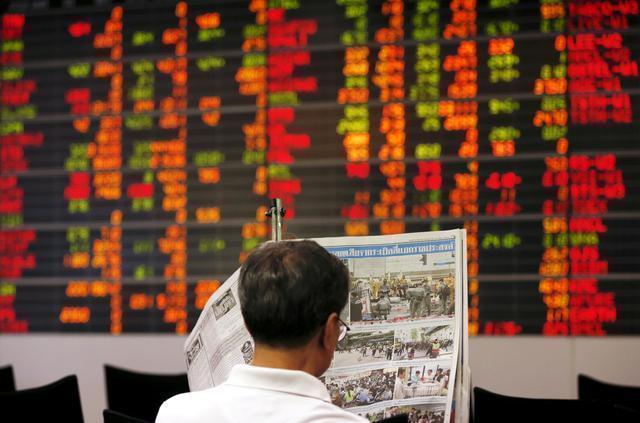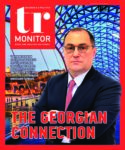The interest rate hike in the U.S. indicates a higher borrowing cost for many developing countries that borrow in international markets. These countries, where energy and food import costs have sharply increased with the adverse impact of the pandemic and the Russia-Ukraine war, may have difficulties providing finance if investors direct their money to the U.S. where interest rates are higher. French economist Eric Dor stated in an analysis published by the French news agency AFP that this situation may raise the cost of everything in developing countries such as Brazil, Argentine, and Turkey, which are already struggling. Therefore, it will be more difficult for developing countries to finance their debt and economic activities, according to Dor. The French economist also thinks that markets and economies may experience crises. Many analysts just like Dor also warn that debt crises may be seen in developing countries.
President Recep Tayyip Erdogan held an unscheduled meeting with Ergun Atalay, Chairman of the Confederation of Turkish Trade Unions (TURK-IS) to discuss a possible minimum wage increase. Ergun Atalay told journalists after the meeting that he submitted the figures and President Erdogan said he was aware of everything. Atalay said they didn.’t discuss the rate of increase in minimum wages, noting that President Erdogan mentioned ongoing work by the Ministry of Labor and Social Security.
Turkey’s benchmark stock index, Borsa Istanbul, closed at 2,485.36 points yesterday, with a daily loss of 1.81%. Starting the day at 2,536.80 points, the index decreased 45.75 points from Wednesday’s close of 2,531.11. Its total market value was more than TRY 2tr by market close, with a daily trading volume of TRY 36.4bn. Although the world’s leading central banks, including the Federal Reserve, have eliminated some future risks with their policy decisions, the ongoing recession risk has strengthened sales pressures on global stock exchanges, according to analysts. They also said 2,480 points will be the support level and 2,5600 points will be the resistance level for the BIST 100 index, in technical terms.
On the foreign policy side, the U.S. House Armed Services Committee (HASC) Chairperson Adam Smith said Turkey won’t be allowed back to the F-35 stealth fighter jet program, as Ankara maintains that it will not accept Sweden and Finland’s NATO applications unless they take concrete steps to meet the country’s demands regarding terrorist organizations. Turkey initially joined the U.S.-led multinational fifth-generation F-35 fighter jet program with a USD 1.4bn investment but was removed by Washington in 2019 after it acquired S-400 missile defense systems from Russia.
Serbia’s president reaffirmed the country’s strong commitment to the TurkStream gas pipeline project, which connects Russia to Europe via Turkey. During a meeting with Foreign Minister Mevlut Cavusoglu in Belgrade, Aleksandar Vucic said Serbia wants to continue its cooperation in the field of energy. The 930-kilometer TurkStream pipeline will transport Russian gas under the Black Sea through Bulgaria, Serbia, and Hungary, with another section reaching Turkey.
DAILY AGENDA
The short-term external debt stock rose by 9.6% to USD 133.4bn in April, compared to the end of 2021, according to the Central Bank.
The number of established companies surged by 110.7% and the number of liquidated firms jumped 259.7% in May, year-over-year, according to the Union of Chambers and Commodity Exchanges of Turkey (TOBB).
The year-end inflation expectation reached 65.59% for 2022, according to the Central Bank’s Survey of Market Participants.
Meanwhile…
>> The total amount in FX-protected TRY deposit and participation accounts rose from TRY 931bn to TRY 962.9bn in the week ending on June 10, compared to the previous week, according to the Banking Regulation and Supervision Agency (BDDK).
>> Residents’ FX deposit accounts fell from USD 214.91bn to USD 213.31bn in the week ending on June 10, compared to the previous week, according to the Central Bank. Residents’ FX deposit accounts dropped by USD 849m in the same period, according to the parity-adjusted data.
>> The Central Bank’s international net reserves declined by USD 2.36bn from USD 10.51bn to USD 8.15bn in the week ending on June 10, compared to the previous week, hitting a 5-month low. The bank’s total reserves dropped from USD 102.74bn to USD 102.51bn in the same period.
>> Foreign investors’ net equity and government debt securities outflows from Turkey totaled USD 316.1m and USD 85m, respectively, and their net corporate bond acquisitions amounted to USD 7.2m, in the week ending on June 10, according to the Central Bank
>> Some 7,556 new coronavirus cases and 20 deaths due to COVID-19 were reported between June 6 and June 12 by the Health Ministry.
>> Mehmet Buyukeksi has been elected as the new President of the Turkish Football Federation (TFF).
>> Sabanci Holding’s cement subsidiary Cimsa has sold its integrated cement plants in Nigde and Kayseri and some other facilities to Ferpa Insaat for EUR 110m.










